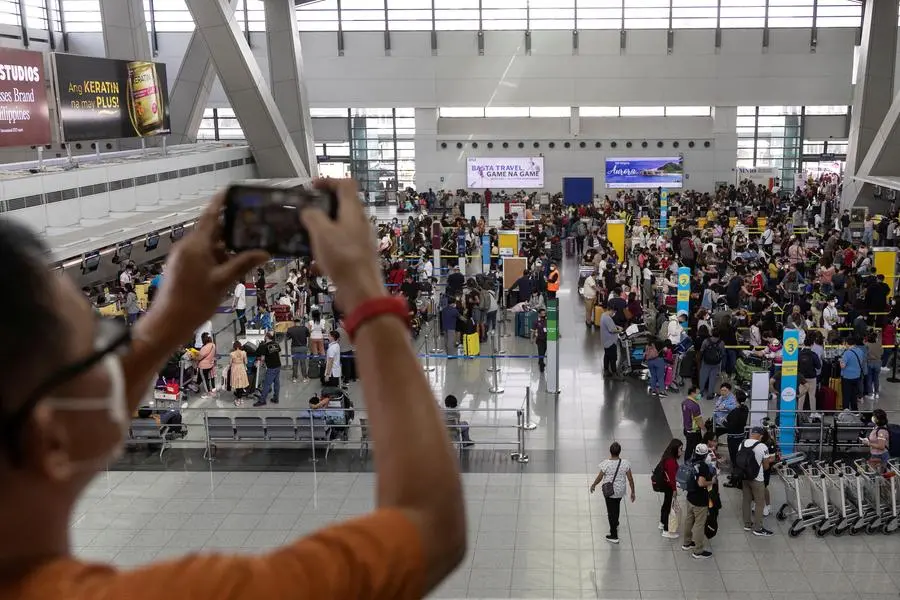PHOTO
Air travel in the Philippines ballooned by more than half to 50.18 million passengers in 2023, but remains a mile behind pre-pandemic peak as demand for international flights is slow to pick up.
Based on records from the Civil Aeronautics Board (CAB), air travel in the country increased by 55 percent last year from 32.33 million in 2022, but is behind by 16 percent from the 2019 level of 60.07 million.
On one hand, domestic passenger volume grew by 29 percent to 28.97 million last year from 22.5 million in 2022, lifted by the reopening of pre-pandemic routes and the return of local demand.
Digging deeper into the data, domestic air travel is close to recovering to its 2019 level of 29.54 million passengers. This trend can be observed in almost all countries in the world, as governments promote flying to local destinations to boost the domestic economy from the pandemic slowdown.
For 2023, low-cost carrier Cebu Pacific, along with its regional unit Cebgo, grabbed over half of the domestic passenger market at 15.11 million. Flag carrier Philippine Airlines (PAL), with the help of its budget option PAL Express, accounted for 29 percent at 8.51 million.
Low-cost carrier AirAia Philippines took 17 percent at 4.81 million, while the rest was flown by boutique operators AirSWIFT (355,458), Royal Air Philippines (104,473), Sunlight Air (62,006) and Island Aviation (10,126).
On the other hand, CAB said the international passenger traffic zoomed to 21.21 million in 2023, from 9.83 million in 2022.
However, foreign air travel is far from regaining its pre-pandemic footing, behind by 31 percent of the 2019 record of 30.53 million.
Broken down, CAB said foreign airlines served 54 percent of the international passenger market at 11.46 million, with the remainder flown by domestic carriers. PAL led all local operators with 5.52 million, while Cebu Pacific landed next with 2.98 million.
The Centre for Aviation estimates that airlines in Asia and the Pacific recovered 85 percent of their pre-pandemic capacity in 2023, trailing their counterparts in North America and Europe where operations are back to 100 percent.
As air traffic goes up, airlines are also faced with supply issues caused by the demand boom, as their vendors struggle to keep up with the mounting orders for jets and their parts.
Copyright © 2022 PhilSTAR Daily, Inc Provided by SyndiGate Media Inc. (Syndigate.info).





















